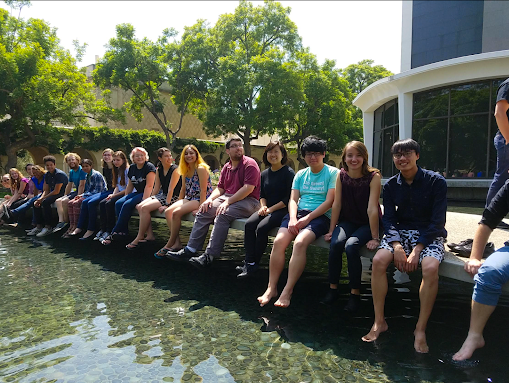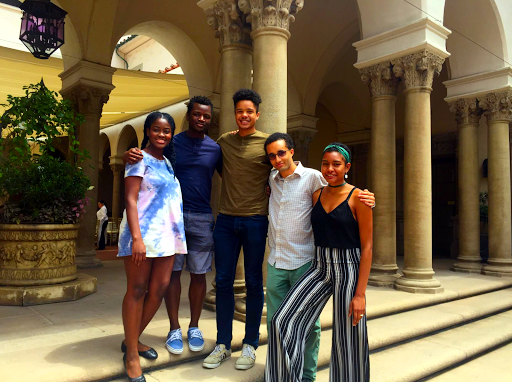Caltech
Physics and Astronomy Research at Caltech
The Caltech Physics and Astronomy departments invite students to participate in ground-breaking research.

Topics of current research interest in the Astronomy Department include: observational cosmology and the nature of dark matter and dark energy; studies of the cosmic microwave background; galaxy formation and evolution; quasars and other active galactic nuclei and radio sources; studies of the dynamics and composition of galaxies and clusters; physics and evolution of the intergalactic medium; interstellar matter; local star and planet formation; extrasolar planetary systems; the structure of the galaxy; globular clusters; stellar abundances; supernovae, gamma-ray bursts, and other types of cosmic explosions and transient phenomena; neutron stars and black holes; accretion disks; digital sky surveys and astroinformatics; numerical general relativity; gravitational wave astronomy and many others.
Research opportunities in the Physics Department include the following topics: Condensed Matter Physics, Cosmology, Experimental Atomic/Molecular/Optical Physics, Experimental Elementary Particle Physics, Gravitational-wave Astronomy, Gravitational Wave Science with LIGO, Institute for Quantum Information and Matter, Nuclear Physics, Observational Astrophysics, Physical Biology, Quantum Optics and Information, Theoretical Astrophysics, Theoretical Elementary Particle Physics.
Program details
What is it?

The selected students will be part of Caltech's WAVE Fellows program. Caltech WAVE aims to foster diversity by increasing the participation of underrepresented students in science and engineering PhD programs and making Caltech's programs more visible and accessible to students not traditionally exposed to Caltech.
Fellows will carry out the work over a 10-week period during the summer and submit two interim reports, a research abstract, and final paper. At the conclusion of the program, students give an oral or poster presentation at one of several WAVE Seminar Days, symposia modeled on a professional technical meeting.
For summer 2024, selected students received a research stipend of $7100 for 10 weeks, plus a campus housing supplement of $2000 and a $300 travel supplement. The research program runs from June 18 to August 23, 2024.
To enrich the research experience, the students are invited to attend the following:
- Weekly seminars by Caltech faculty & JPL scientists and engineers
- An academic and professional development series on developing a research career, graduate school admissions, and other topics of interest to future researchers
- Various social and cultural activities
- Weekly small student-faculty dinners
- Special field trips
Who should apply?
Applicants must be at least 18 years of age by the beginning of the program. Applicants must be enrolled at a CSU or California Community College at the time of their application. Participants may not have graduated from their 4-year institution before the beginning of the summer internship, but community college students may be in the process of transferring to a 4-year institution. Citizens, permanent residents, and AB540/DACA students are eligible to apply.
All applicants must have completed a minimum of one full year of college-level physics by the start of the program.
When and how to apply?
Applications are due February 1, 2024. To apply to the program, go to the Application Home Page. In addition, you must ask two faculty members (or others familiar with your academic or work background) to submit two letters of reference. Indicate their names, addresses, phone numbers, and e-mail addresses in your on-line application where appropriate.
This material is based upon work supported by the National Science Foundation under Grants DUE-1741863, AST-1636646, and AST-1836019.